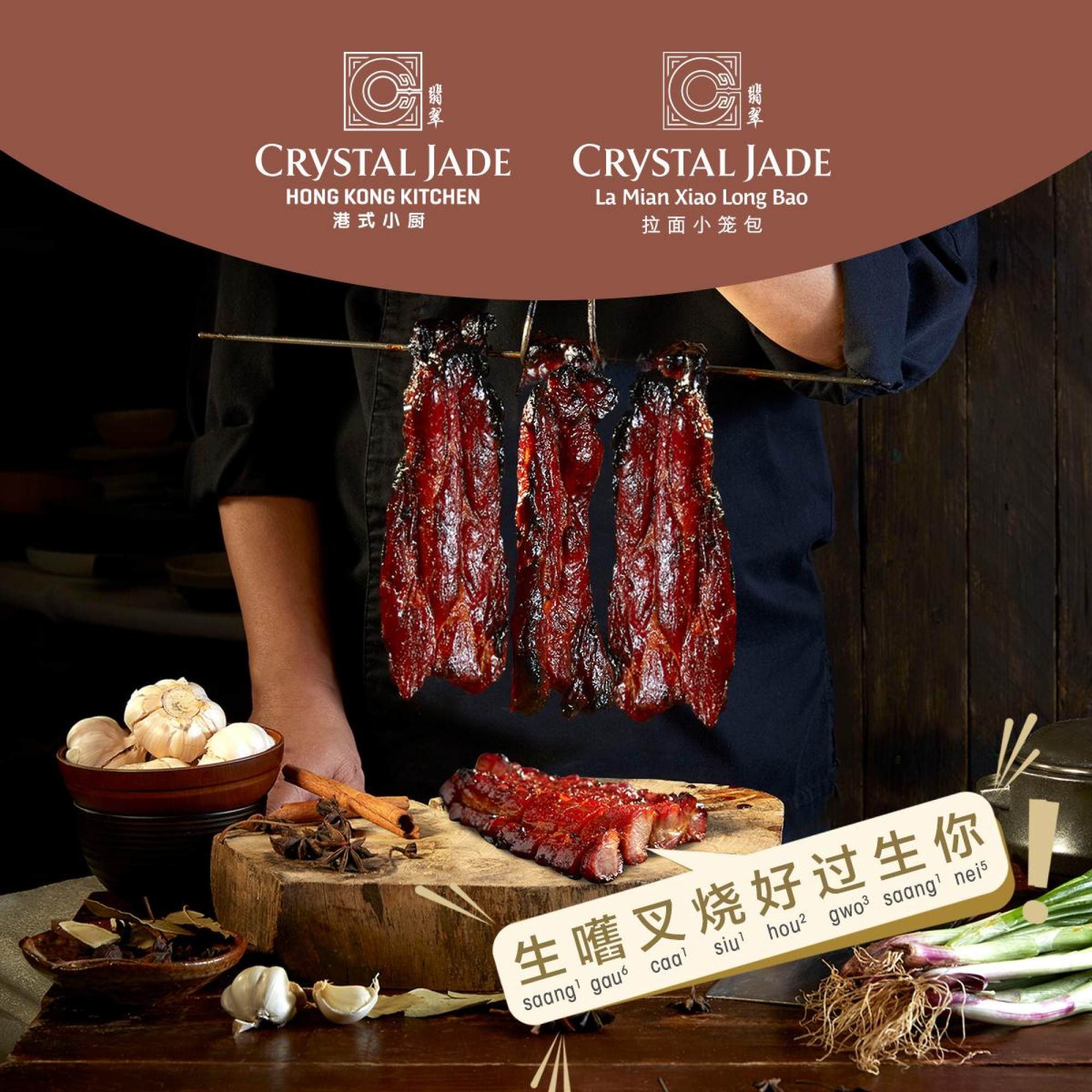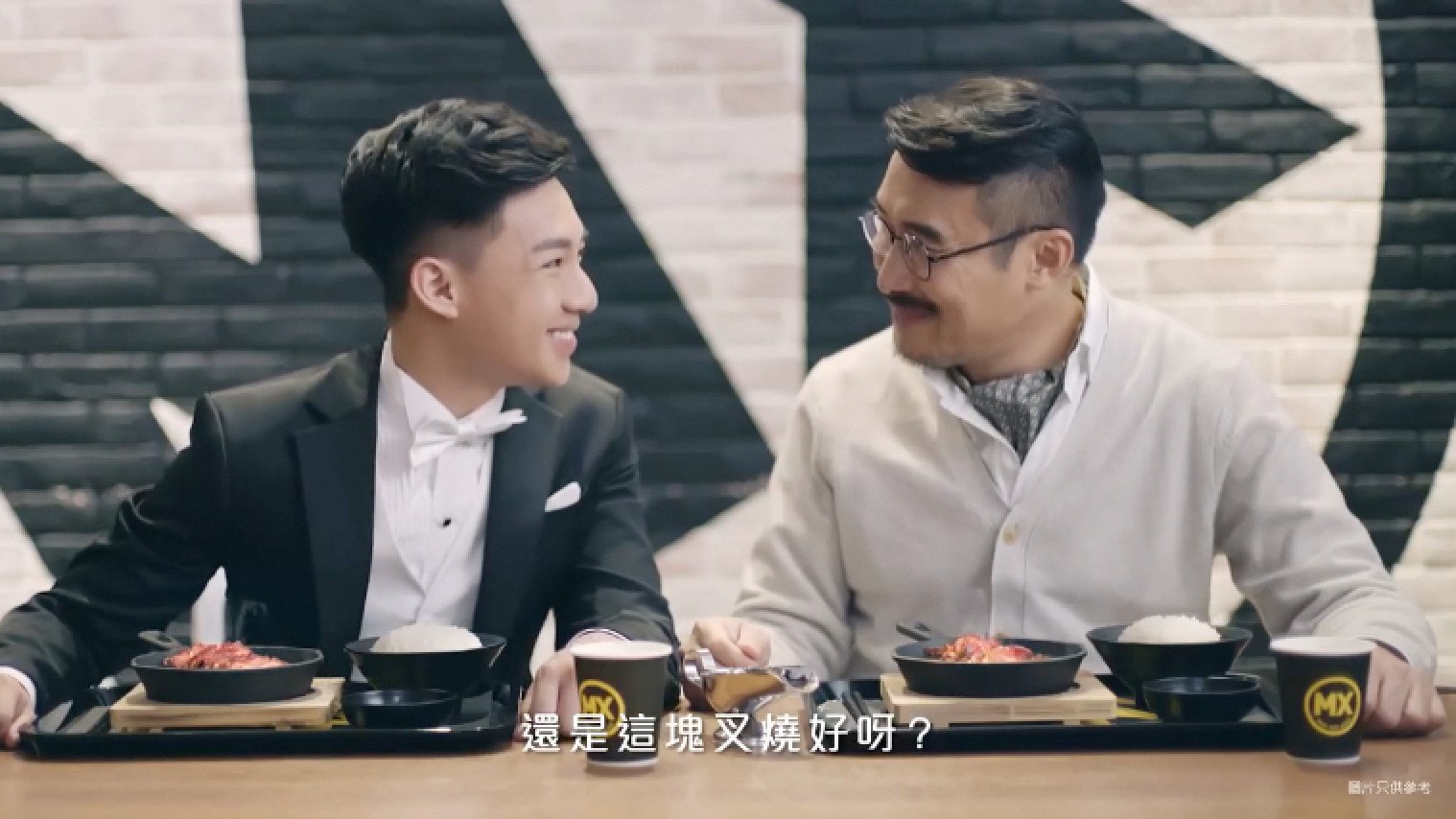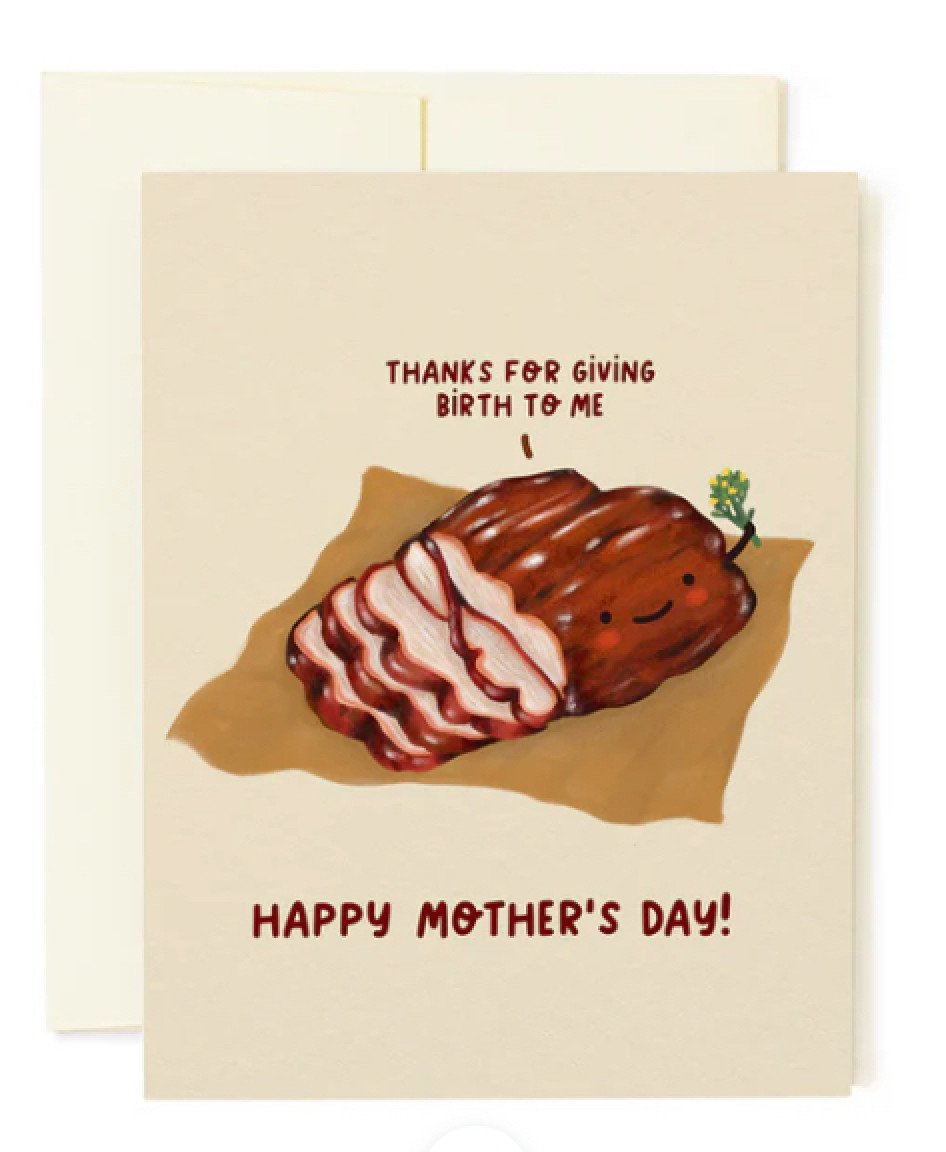The restaurant is offering a free plate of char siu on selected days in June if diners bring their parents and have them recite the phrase – “saang gau caa siu hou gwo saang nei” in Cantonese – in front of staff.
In a promotional video on the restaurant’s social media platforms, a stern mother scolds her daughter for never picking up her phone, and for always leaving the house early and returning late. “Giving birth to char siu is better than giving birth to you,” she says, unhappily. “At least char siu is nice to eat!”
A plate of barbecued pork arrives on the table and the daughter sweetly places a piece in her mother’s bowl. The video ends with the phrase “be better than a char siew”.
While clearly meant to be tongue in cheek, Crystal Jade’s use of the phrase has seen it roasted by internet users, who called the ad demeaning; some suggested its marketing staff should be sacked.
Others leapt to their defence, pointing out that the phrase is in common use and “super funny”, and that although Cantonese families say it all the time, “it doesn’t mean they love their kids any less”.
On June 4, a spokesman for Crystal Jade Group clarified that the advertising campaign was intended to “bring a touch of lightheartedness to the Mother’s and Father’s Day weekends” by referencing a common Cantonese saying.

“We intended this to be a way for us to connect with our Cantonese-speaking audience in a relatable and humorous manner. However, we understand that humour can be subjective, and regret that this particular reference missed the mark and has caused unhappiness among some customers,” the spokesman added.
The ad clearly touched a nerve, but where does this odd phrase come from?
It is said to have come into use in Guangdong following the Chinese revolution in 1949, when char siu – a scarce luxury in a time of rationing and food tickets under communism – was seen as a symbol of a better life.
Raising unruly children in tough times must have taken its toll on the first mother to utter the phrase – which, as a cutting insult, quickly spread.

The phrase is thought eventually to have trickled down to Hong Kong via migrants and refugees in the 1950s and 60s, where it would become firmly lodged in society’s collective memory.
Crystal Jade is not the first restaurant chain to use the char siu quip in its marketing. In 2018, Maxim’s fast food restaurant chain launched an elaborate commercial centred around one son’s journey to prove his disapproving father wrong – that he was better than a piece of char siu.
It was accompanied by a social media campaign encouraging followers to share their own stories of the phrases they would hear when they were younger.
It is a reference that lives on in popular culture. In the recent cinematic hit Twilight of the Warriors: Walled In, set in the 80s, a shimmering bowl of char siu rice represents the ultimate indulgence for its down-on-his-luck protagonist, Chan Lok-kwan, a refugee from mainland China.
A thread on social media platform Reddit for fans of the RPG video game Genshin Impact has more than 170 comments discussing a character profile that lists their favourite food as being char siu along with the memory of their “exasperated mom” using the well-known phrase.
“Standard Asian parents’ shenanigans,” quips one user.


Taiwanese author Elaine Lui used the phrase for the Chinese title of her book Listen to the Squawking Chicken – a memoir that focuses heavily on her relationship with her mother, whose sayings would often be raw and unfiltered.
The phrase is also fodder for social media influencers such as J Lou and Dr Candise Lin, who have highlighted the idiom on their feeds as a curious facet of Cantonese culture. And there is hardly a char siu recipe on the internet that does not reference it.
One of the funniest interpretations around is from Vivian Yu, the Canadian-Toishanese illustrator behind the stationery brand Paper and Rice.
Known for her punning graphics that reference the Asian diaspora experience, she designed a greetings card that shows an anthropomorphised plate of char siu saying: “Thanks for giving birth to me. Happy Mother’s Day!”

